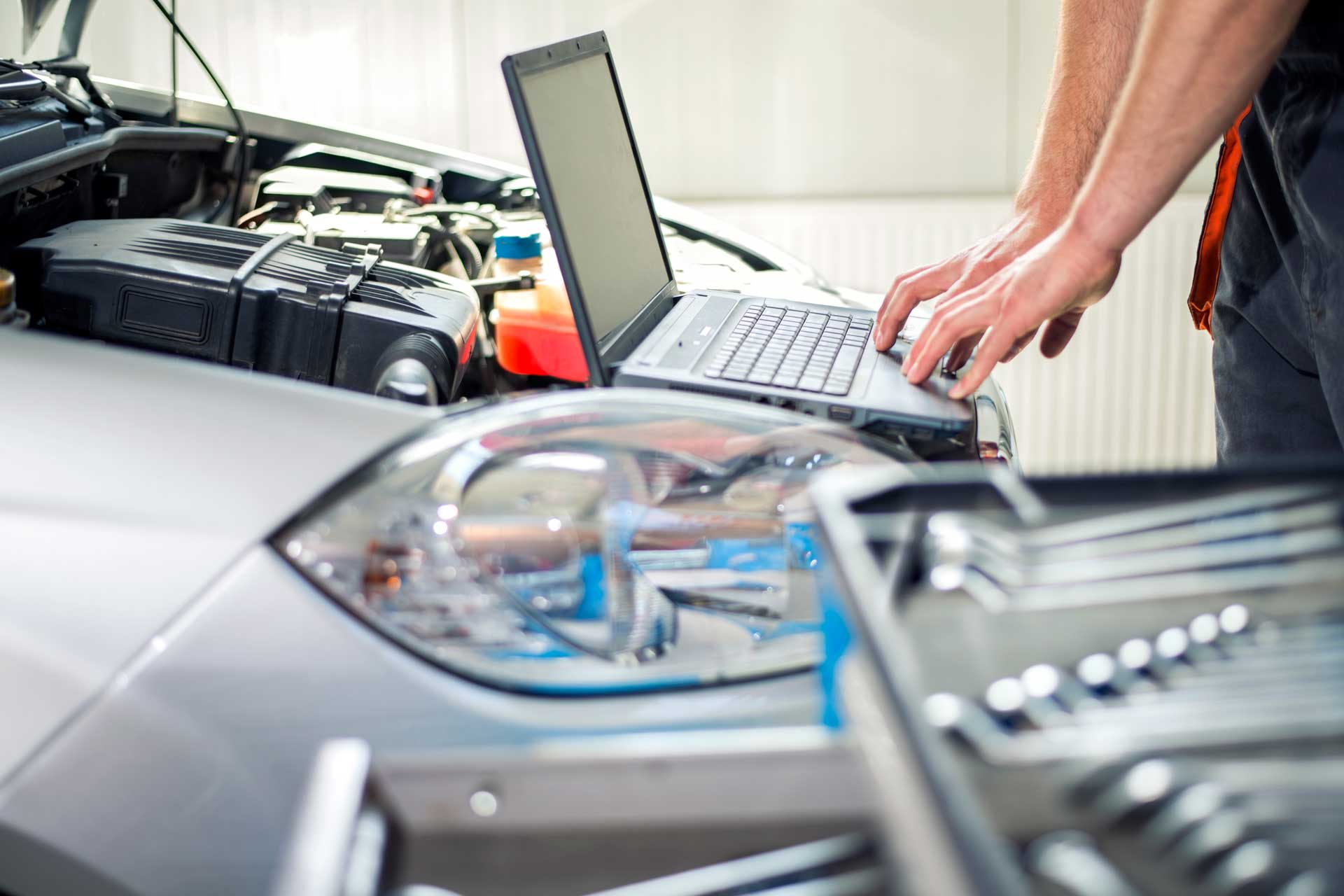In today’s cars, virtually everything is computerized. Modern vehicles can have more than 100 sensors on board. Soon that number could top 200.
Taking your car, truck, or SUV to a collision center after an accident is very similar to what you might experience going to the Emergency Room. Just as the medical team will order a battery of X-rays and tests to determine the extent of your injuries, the first thing an auto body technician is going to do is a damage analysis scan.
Also referred to as a “Pre-Repair Scan” or “Health Scan,” this procedure captures diagnostic trouble codes (DTCs) that indicate what needs to be fixed. Once repairs are done, there is usually a post-repair scan as well to make sure all issues have been remedied.
Calibration comes into play after the repairs are made. It basically amounts to telling the vehicle’s internal computers to readjust all cameras, sensors, and other technology so they can work properly.
The interesting thing about scans and calibrations is that even though they are mandatory for safe repair of the vehicle, not all insurance companies are willing to pay for these services.
When you choose an auto body shop for post collision repairs, make sure it’s a shop like Parkville Auto Body that will work with you and your insurance company to ensure that all necessary diagnostics and calibrations are done so that you are road-safe when your repairs are complete.
At Parkville Auto Body, we pride ourselves on our ability to negotiate with your insurance company to make sure you have the best experience possible.
For more details on scanning and calibration, check the articles linked below.
The Differences Between Scanning and Calibration
Calibration becomes vital with changes in technology

